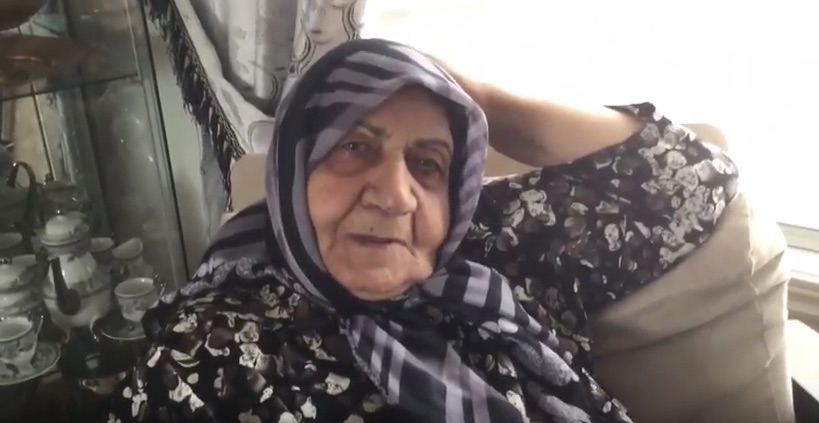 Screenshot from YouTube.
Screenshot from YouTube. As I was giving a talk for hundreds of people at a local Purim program last year, I was nearly booed off the stage by some elderly Persians who wanted to hear only a classical Persian musical concert. One old woman stood up and screamed “Baseh!” (“Enough!) so many times that it seemed as though I was subjecting her to torture in a North Korean prison.
The strangest part of the incident was that seemingly none of the younger audience members, who were seated way in the back, understood that the front half of the room wanted to pelt me with rotten cucumbers because it had not realized that the program would feature remarks as well as live music.
In a well-intentioned gesture that went terribly wrong, one of the young musicians onstage behind me thought it would be a good idea to play haunting notes on her violin to accompany my heartfelt words and throw some support my way. This only emboldened the now-shouting older men and women, who believed that even the musicians were trying to tell me to get the hell off the stage.
In my 15 years of public speaking, I never thought I’d be yelled at by a bunch of Persian grandmothers, and I was grateful that my family had not accompanied me that evening. They would have thrown a cucumber at the head of the woman who had shouted the first, “Baseh!” And not a Persian cucumber — one of those mighty English ones.
When my anger and humiliation subsided, I realized that the people who had shouted at me were just being old Persians.
When my anger and humiliation subsided, I realized that the people who had shouted at me were just being old Persians. That did not exonerate them for their rudeness, nor did it reduce their behavior to patronizing stereotypes, but it did comfort me, because it served as a reminder that many a grumpy, sassy old Persian still lived in this city, and no doubt had incredible stories to tell, if anyone only bothered to ask.
Elderly Persians are incredibly endearing — old women with names such as Elaheh (“Goddess”) and Ehteram (“Respect”), and old men with names such as Jahangir (“Conqueror of the World”) and Farzin (“One Who Is Learned”). Their great-grandchildren have names like Jayden and Madison.
I love these folks — the men who gather every day at the picnic tables at La Cienega Park to play backgammon and reminisce about a time when they were young and Iran was free; the women at the Persian kosher supermarkets who look for the “good” cucumbers for minutes on end, because there is no one back home to care for anymore and, to their great heartbreak, they now have all the time in the world.
These men and women possess the kind of resilience that I could only hope for. Their stories and sacrifices humble me when I think that I’m so impressive because I know how to use a Walgreens app to order photo prints.
It’s imperative that younger generations of Iranian-American Jews engage their elders, whether their grandparents, who are often ignored at Shabbat meals in preference of Instagram scrolls, or even reaching out to older ones who they have never met. I have derived immeasurable meaning from simply visiting a few Iranian-Jewish elder care facilities in West Los Angeles on Friday afternoons bearing flowers, grape juice, challah and gratitude. The residents’ appreciation makes me happy to be alive.
I recount the story from last Purim not to foment anger or stereotypes against my community, but to show readers that, like Purim itself, there are beauties hidden in our midst, and sometimes those beauties include the charmingly undiplomatic ways of a generation that is slipping through our fingers.
And perhaps one day, a few decades from now, I will give a public address to a new generation of Iranian-American Jews that has little knowledge of the heartbreaking struggles and beautiful survival of its great-grandparents, a generation that will tap on its iPhone XXXVs, tune me out and instruct its driverless cars to be ready once my soporific speech is over.
At that point, I will pause my remarks, look sternly into the eyes of this young, selfie-obsessed audience and shout, “Baseh!”
Tabby Refael was born in Tehran after the Islamic Revolution. She previously served as executive director and co-founder of 30 Years After, a group whose goal is to promote civic action and leadership among Iranian-American Jews.























 More news and opinions than at a Shabbat dinner, right in your inbox.
More news and opinions than at a Shabbat dinner, right in your inbox.